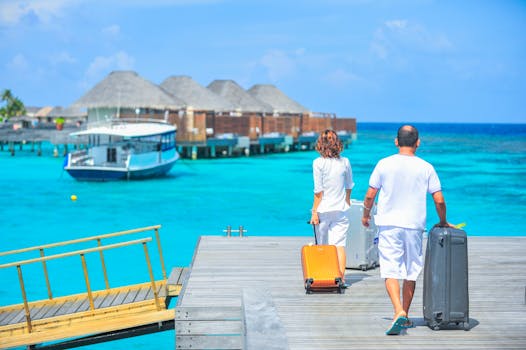How to Ensure That Your Tourism Has a Positive Impact on Local Communities in Tanzania: Ethical Safari
Tanzania, renowned for its breathtaking landscapes, diverse wildlife, and rich cultural heritage, is a prime destination for tourists seeking adventure and natural beauty. However, the influx of tourists can sometimes lead to negative consequences for local communities. To ensure that tourism has a positive impact, it is essential to adopt ethical safari practices that benefit both the environment and the local populace. This article explores effective strategies to achieve this goal.
Understanding the Importance of Ethical Tourism
Ethical tourism is a concept that emphasizes responsible travel practices that respect local cultures, economies, and environments. In Tanzania, where tourism is a significant economic driver, ethical practices can help mitigate the adverse effects of mass tourism. Here are some reasons why ethical tourism is crucial:
- Preservation of Culture: Ethical tourism promotes respect for local traditions and customs, helping to preserve the unique cultural identity of communities.
- Economic Benefits: By supporting local businesses, ethical tourism ensures that a larger share of tourism revenue stays within the community.
- Environmental Conservation: Responsible tourism practices help protect Tanzania’s rich biodiversity and natural resources.
Supporting Local Economies
One of the most effective ways to ensure that tourism positively impacts local communities is by supporting local economies. Tourists can contribute to the economic well-being of communities in several ways:
- Choose Local Guides: Hiring local guides not only provides employment opportunities but also enriches the tourist experience with authentic insights into the culture and environment.
- Stay in Community-Owned Lodges: Opting for accommodations that are owned and operated by local communities ensures that profits are reinvested into the community.
- Buy Local Crafts: Purchasing handmade crafts and souvenirs from local artisans supports their livelihoods and encourages the preservation of traditional crafts.
For instance, the Ngorongoro Conservation Area has seen success with community-based tourism initiatives that allow local Maasai to share their culture with visitors while benefiting economically from their participation.
Promoting Sustainable Practices
Sustainable tourism practices are essential for minimizing the environmental impact of tourism. Tourists can play a significant role in promoting sustainability by:
- Reducing Waste: Tourists should be encouraged to minimize waste by using reusable water bottles and bags.
- Respecting Wildlife: Ethical safaris prioritize wildlife conservation by adhering to guidelines that prevent disturbance to animals and their habitats.
- Participating in Conservation Efforts: Tourists can engage in activities such as tree planting or wildlife monitoring, directly contributing to conservation efforts.
For example, the Serengeti National Park has implemented strict regulations on safari vehicles to minimize their impact on wildlife, ensuring that tourists can enjoy the natural beauty without harming the ecosystem.
Engaging with Local Communities
Engagement with local communities is vital for fostering mutual respect and understanding between tourists and residents. Here are some ways to facilitate this engagement:
- Cultural Exchange Programs: Tourists can participate in cultural exchange programs that allow them to learn about local customs and traditions.
- Community Events: Attending local festivals and events provides tourists with an authentic experience while supporting community initiatives.
- Feedback Mechanisms: Establishing channels for local communities to provide feedback on tourism practices ensures that their voices are heard and considered.
For instance, the village of Mto wa Mbu has developed community-based tourism initiatives that allow visitors to experience local life while directly benefiting the residents.
Conclusion: The Path to Responsible Tourism in Tanzania
In conclusion, ensuring that tourism has a positive impact on local communities in Tanzania requires a commitment to ethical practices that prioritize cultural respect, economic support, and environmental sustainability. By choosing local guides, staying in community-owned accommodations, and engaging with residents, tourists can contribute to the well-being of the communities they visit. Moreover, promoting sustainable practices and fostering cultural exchanges can create a more enriching experience for both tourists and locals. As travelers, we have the power to make a difference—let us choose to travel responsibly and ethically in Tanzania.
